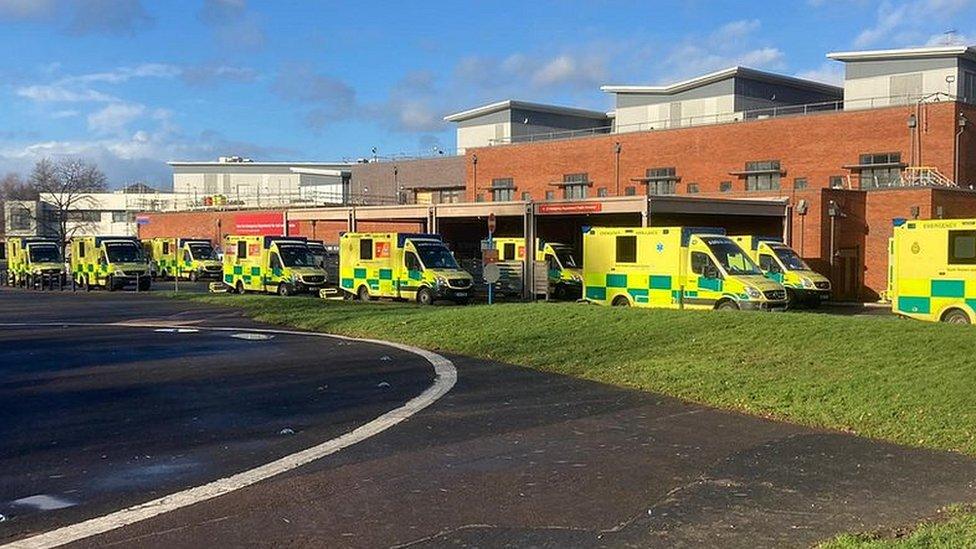Hospital handovers key to faster responses, says 999 boss
- Published
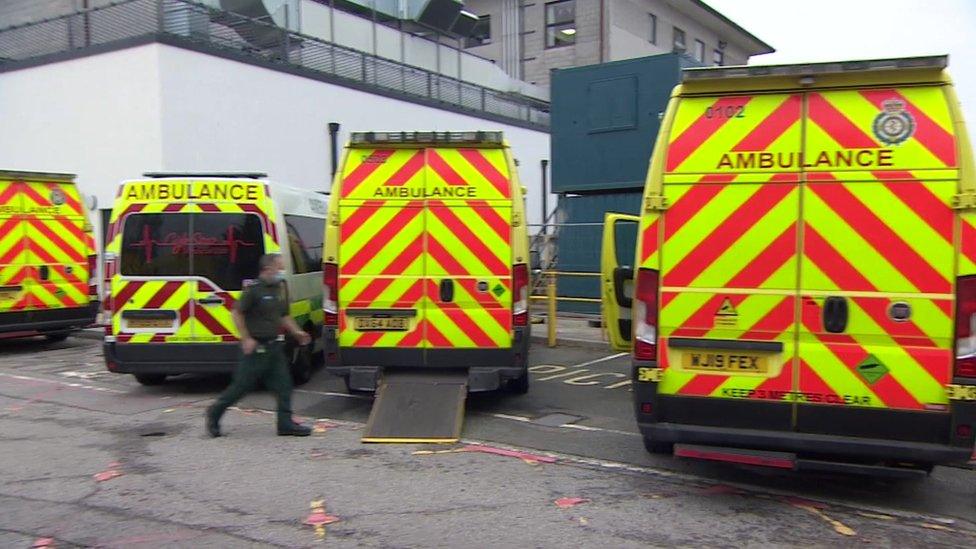
The South West ranked highest in NHS England's figures which showed time lost to ambulance handover delays
Ambulance response times will improve when patients can be handed over more quickly to hospitals, says the head of the South Western Ambulance Service.
Staff were "desperately trying to do the job that they joined the ambulance service to do", said Will Warrender.
The South West recently ranked highest in NHS England's figures which showed time lost to ambulance handover delays.
Hours measured from 14 November 2022 to 8 January 2023 show 892.4 hours were lost in the service's region.
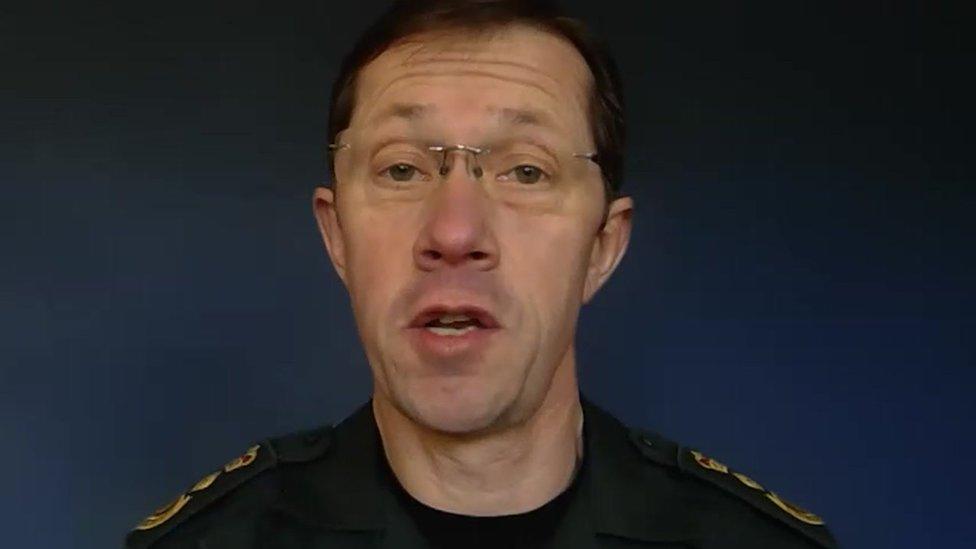
Will Warrender said there was a glimmer of hope for faster responses with recent improvements
Mr Warrender, the service's chief executive, told the BBC: "The quicker response times will be returned to once we are able to handover our patients into hospitals quicker than we can at the moment.
"So, in December, we lost about a third of our ambulances across the month because they were sat outside hospital waiting to offload patients.
"That's a problem clearly for the patients in the ambulances, and it's a problem for patients in the community who we can't get to.
"And it's a problem for my own team who were sat there desperately trying to do the job that they joined the ambulance service to do."
He added: "A slight glimmer of hope is that we've seen a real improvement in the last two weeks or so with a drop in activity levels or improvement in handover delays.
"It's no fault of any one part of the system.
"This is why we keep talking about all the different parts of the system coming together, pulling together to resolve the situation that we find ourselves in."
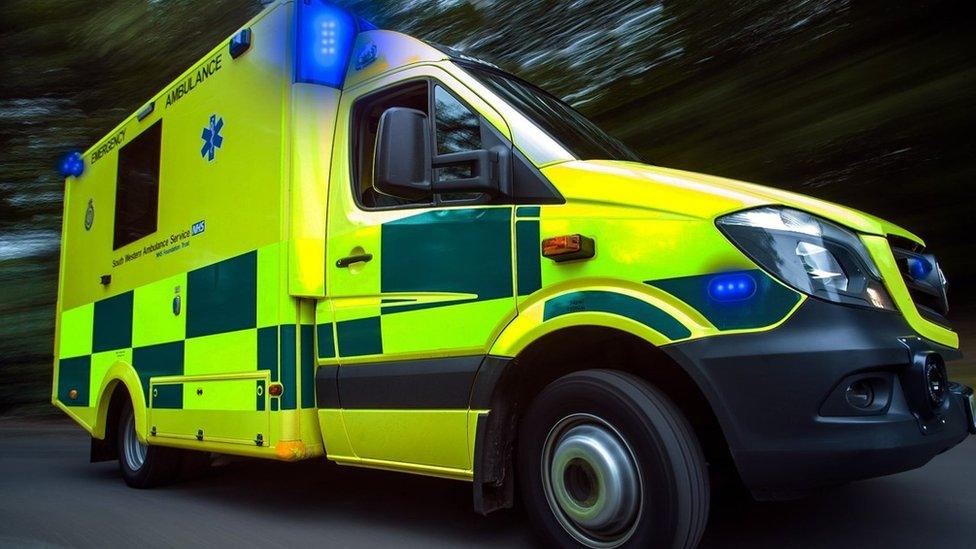
Will Warrender said there had been an improvement in response times
He said that ahead of strike days ambulance staff had "worked really hard with colleagues across the health and social care sector, to ensure that we're able to provide as safe a service as we possibly can" while the industrial action was carried out.
Emergency care assistant Chris Kent told BBC Radio Cornwall of the long waits: "It can be very frustrating for the patients, they can become quite agitated ... It's very uncomfortable.
"Likewise, for us as crews ... many of us are starting to suffer from muscular-skeletal injuries from sitting at the hospital for so long."
He said the situation was "demoralising" and had got "drastically" worse over the past four years he had been in the job.
The South Western Ambulance Service Foundation Trust (SWASFT) covers Bristol and the former Avon area, Cornwall and the Isles of Scilly, Devon, Dorset, Somerset, Gloucestershire and Wiltshire.
Ambulance staff belonging to three unions - GMB, Unison and Unite - are on strike on Monday in a dispute over pay.

Follow BBC News South West on Twitter, external, Facebook, external and Instagram, external. Send your story ideas to spotlight@bbc.co.uk.
- Published23 January 2023
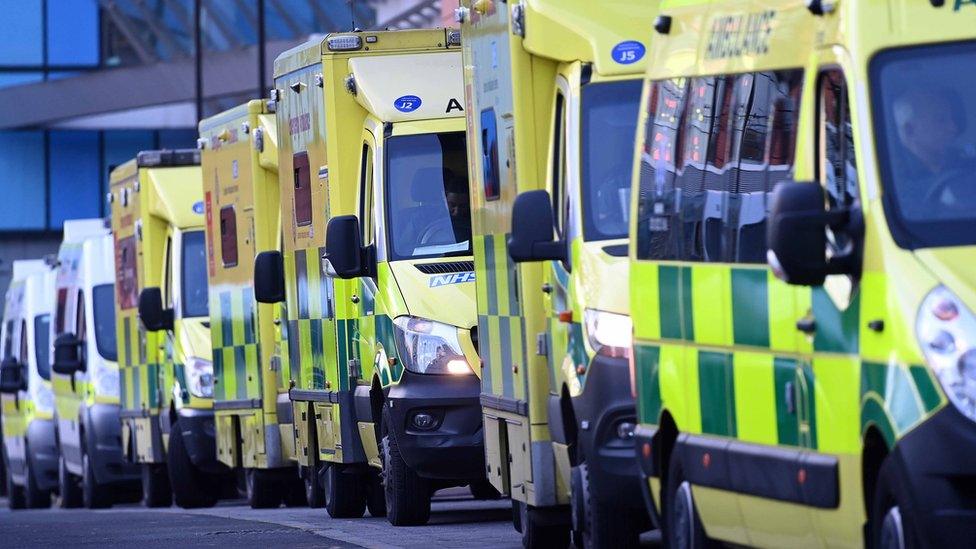
- Published13 January 2023
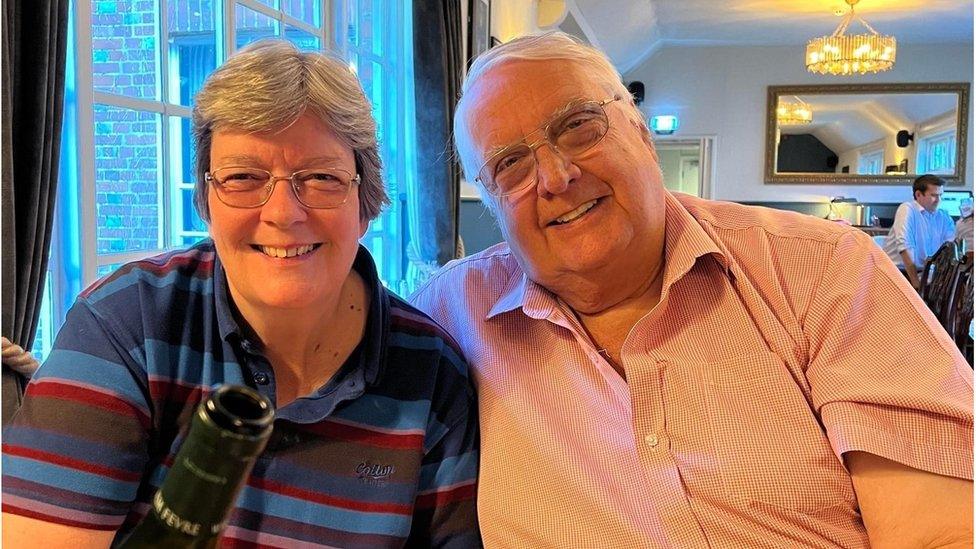
- Published3 January 2023
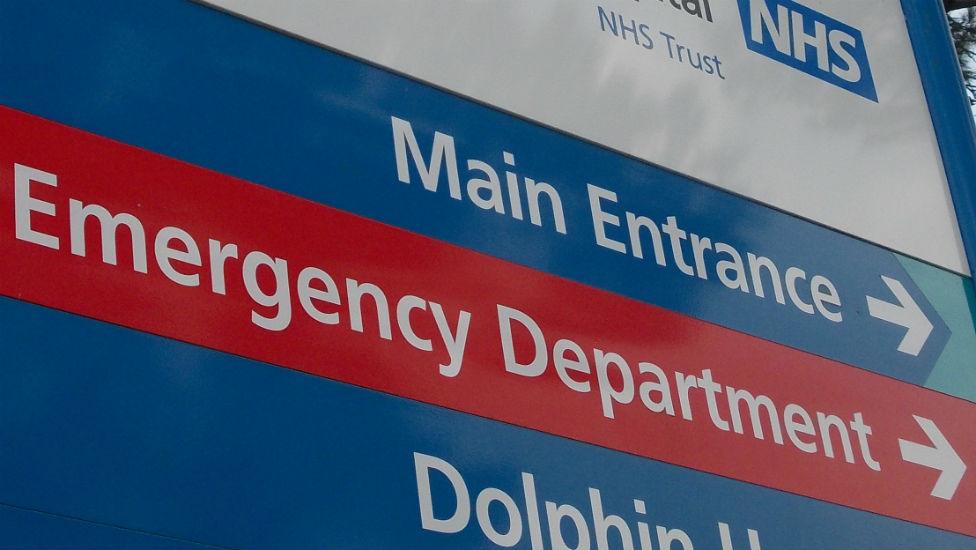
- Published3 January 2023
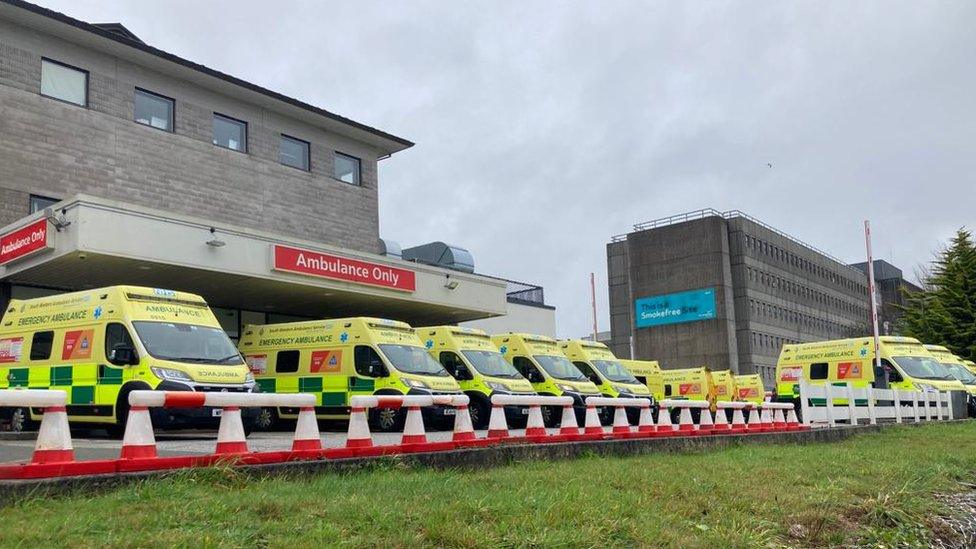
- Published30 December 2022
